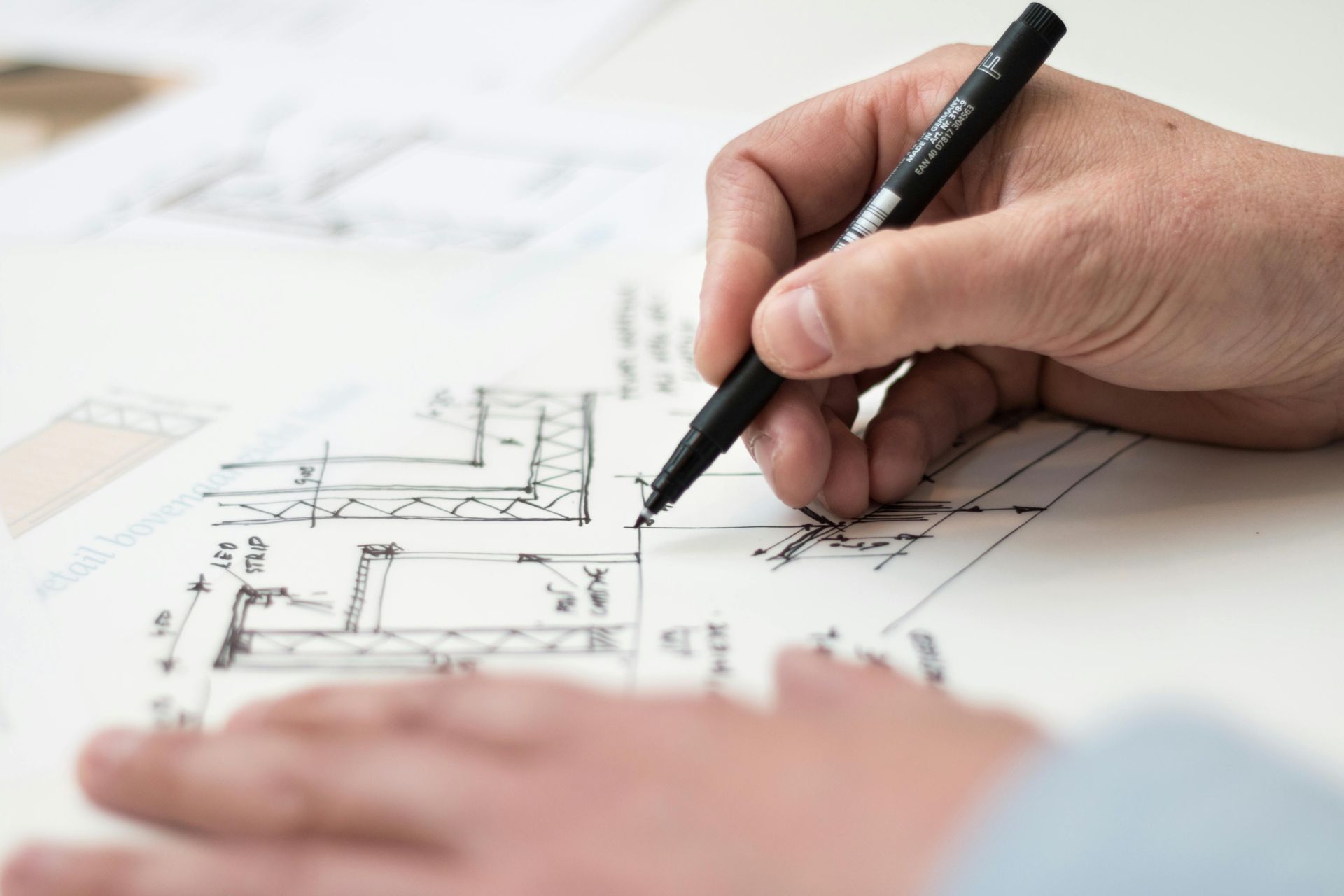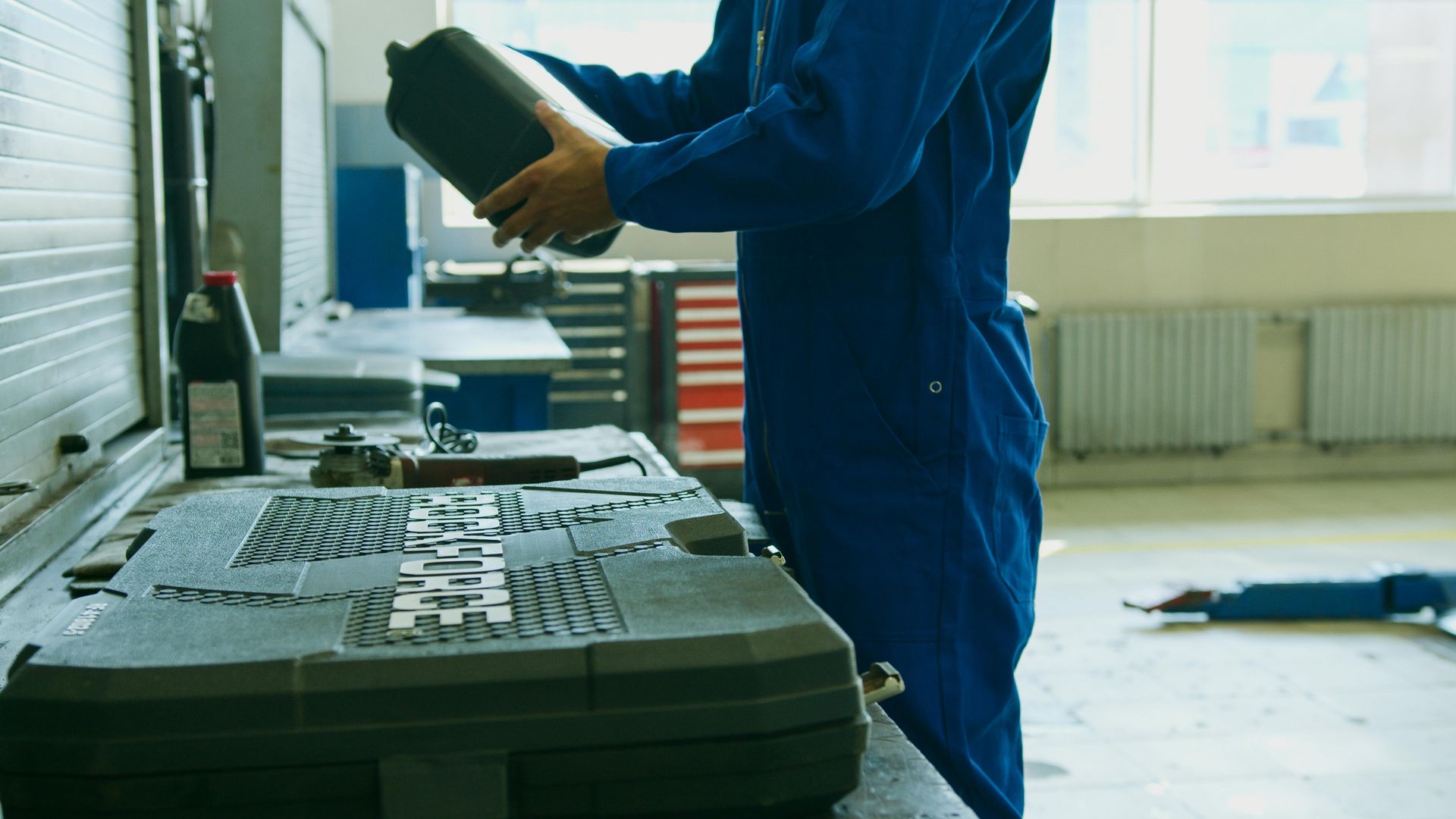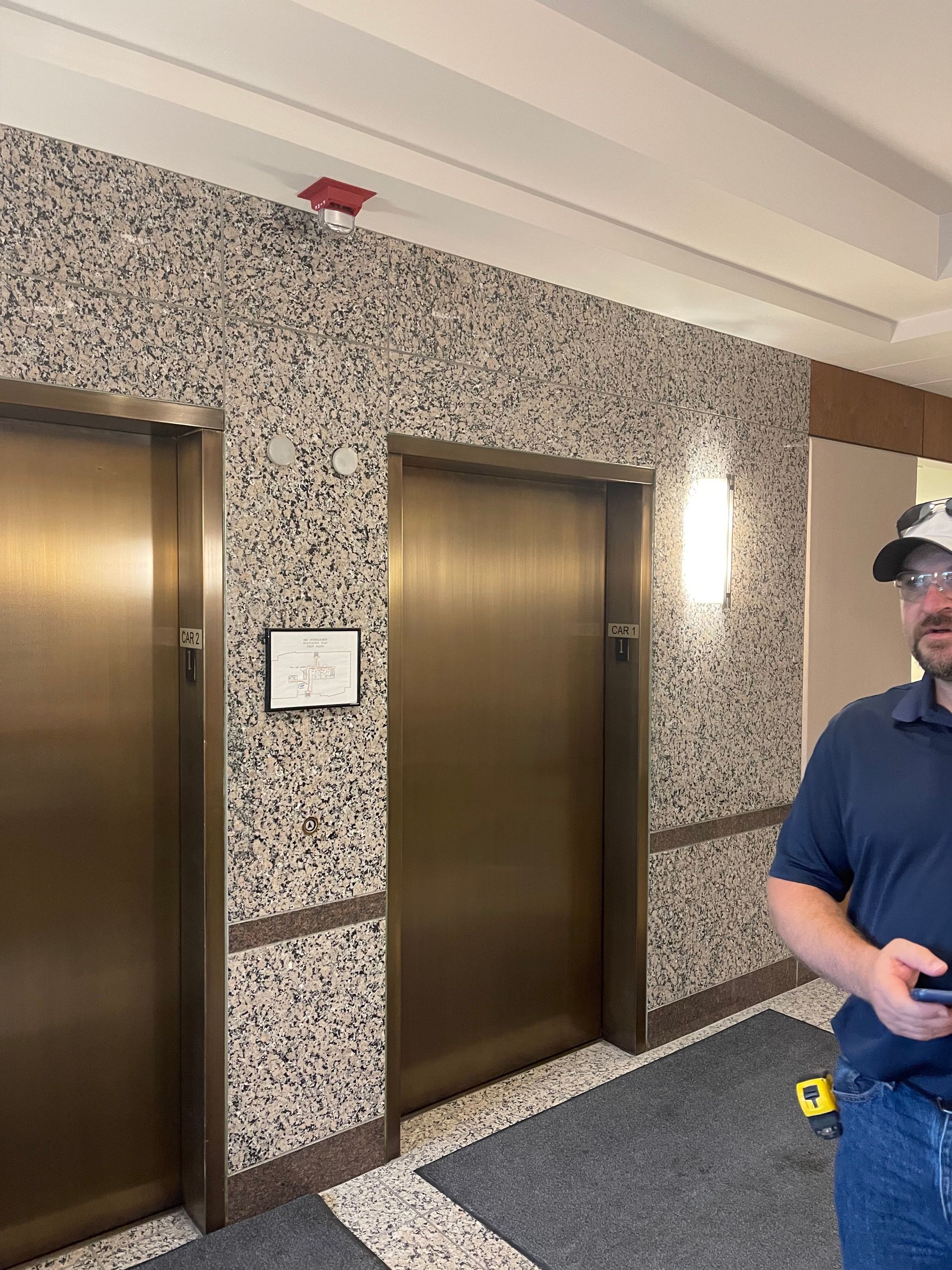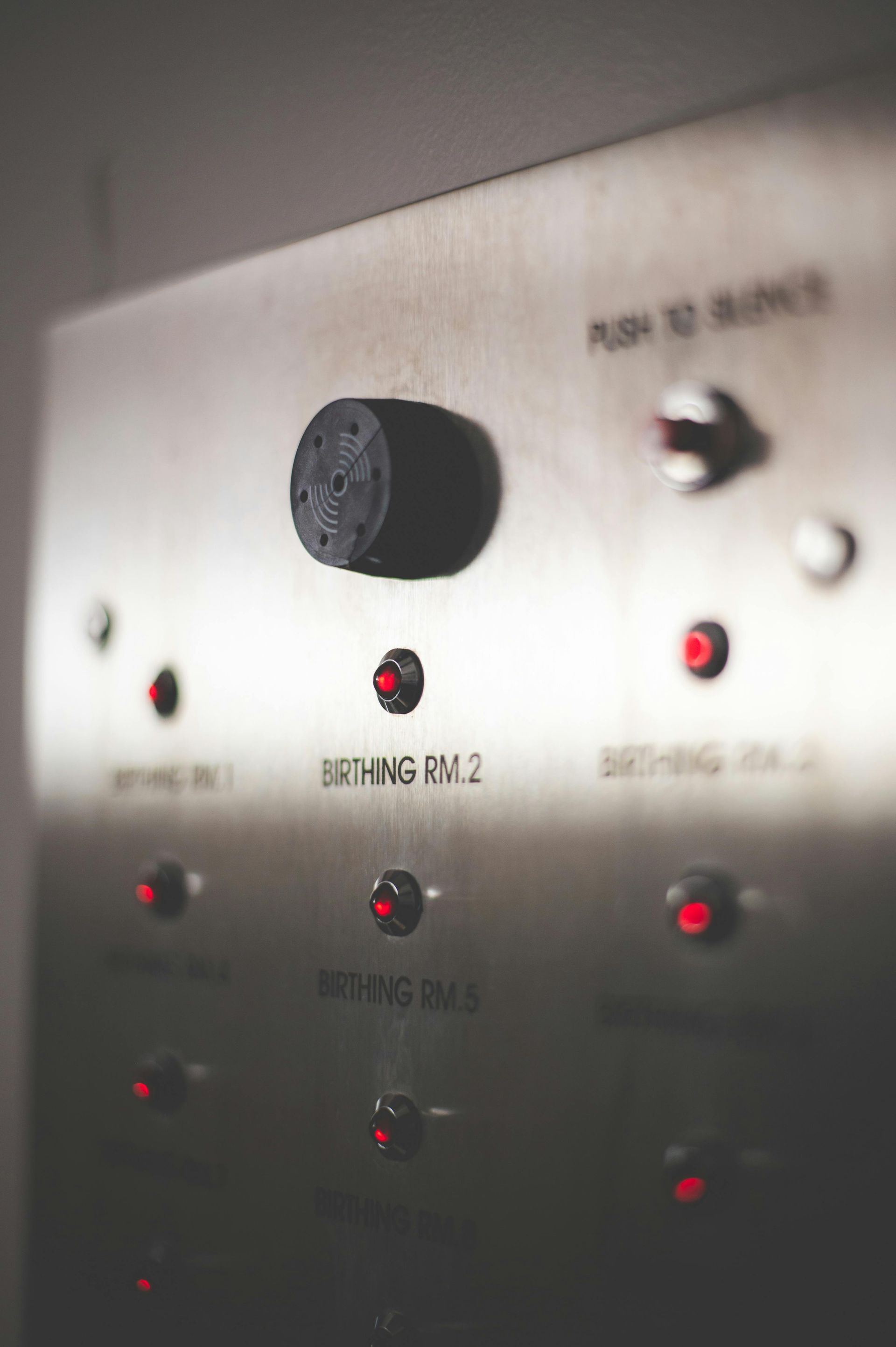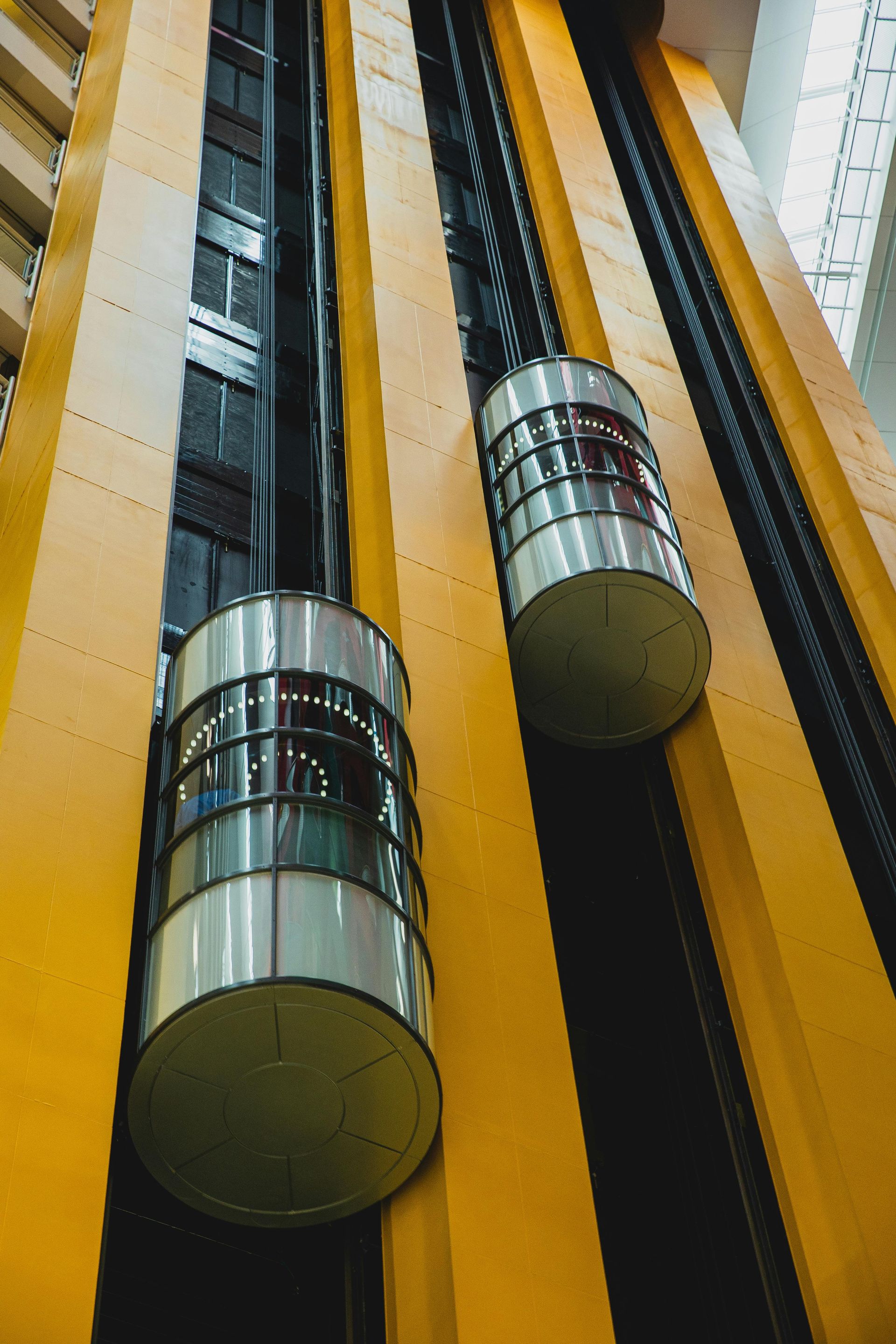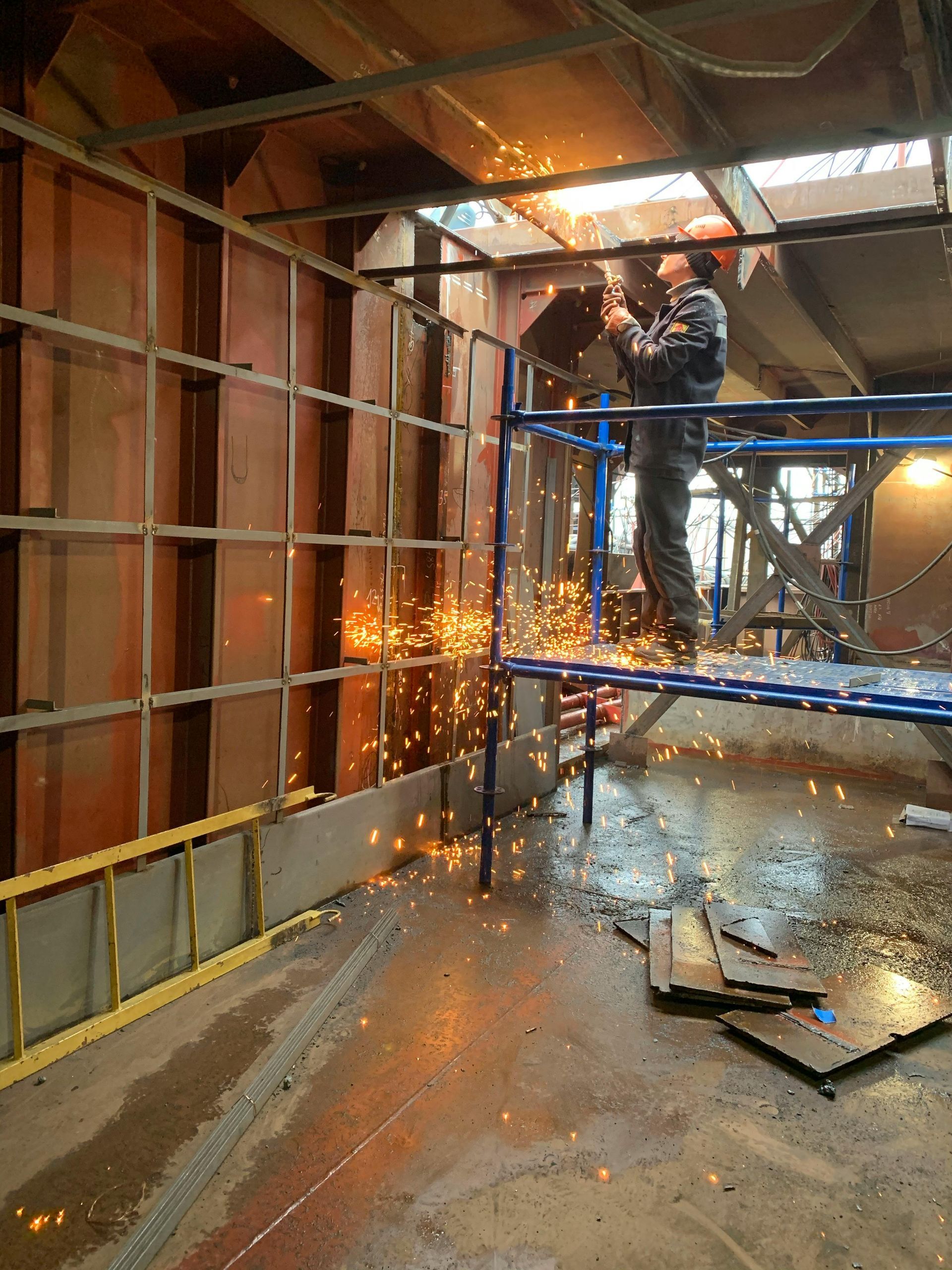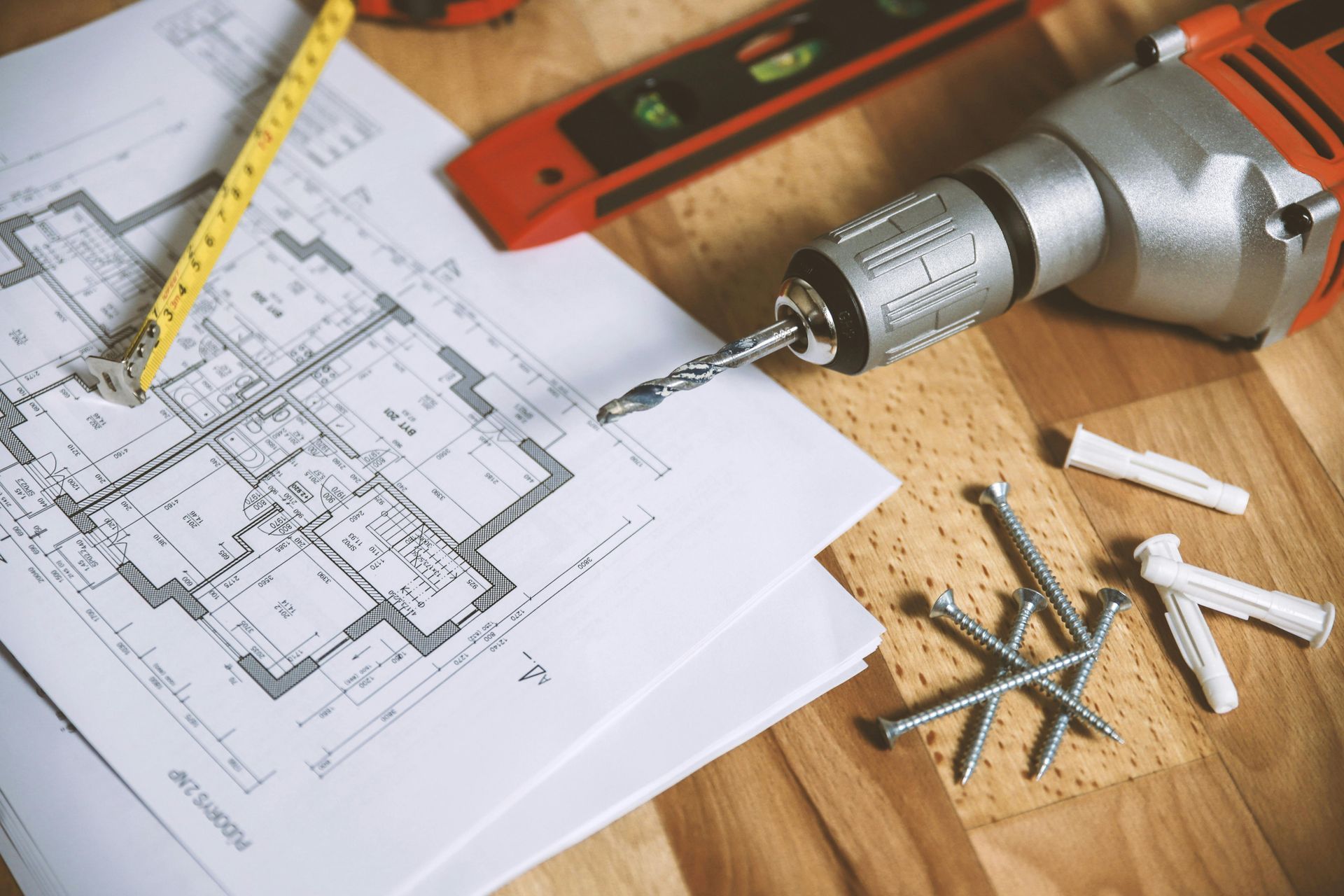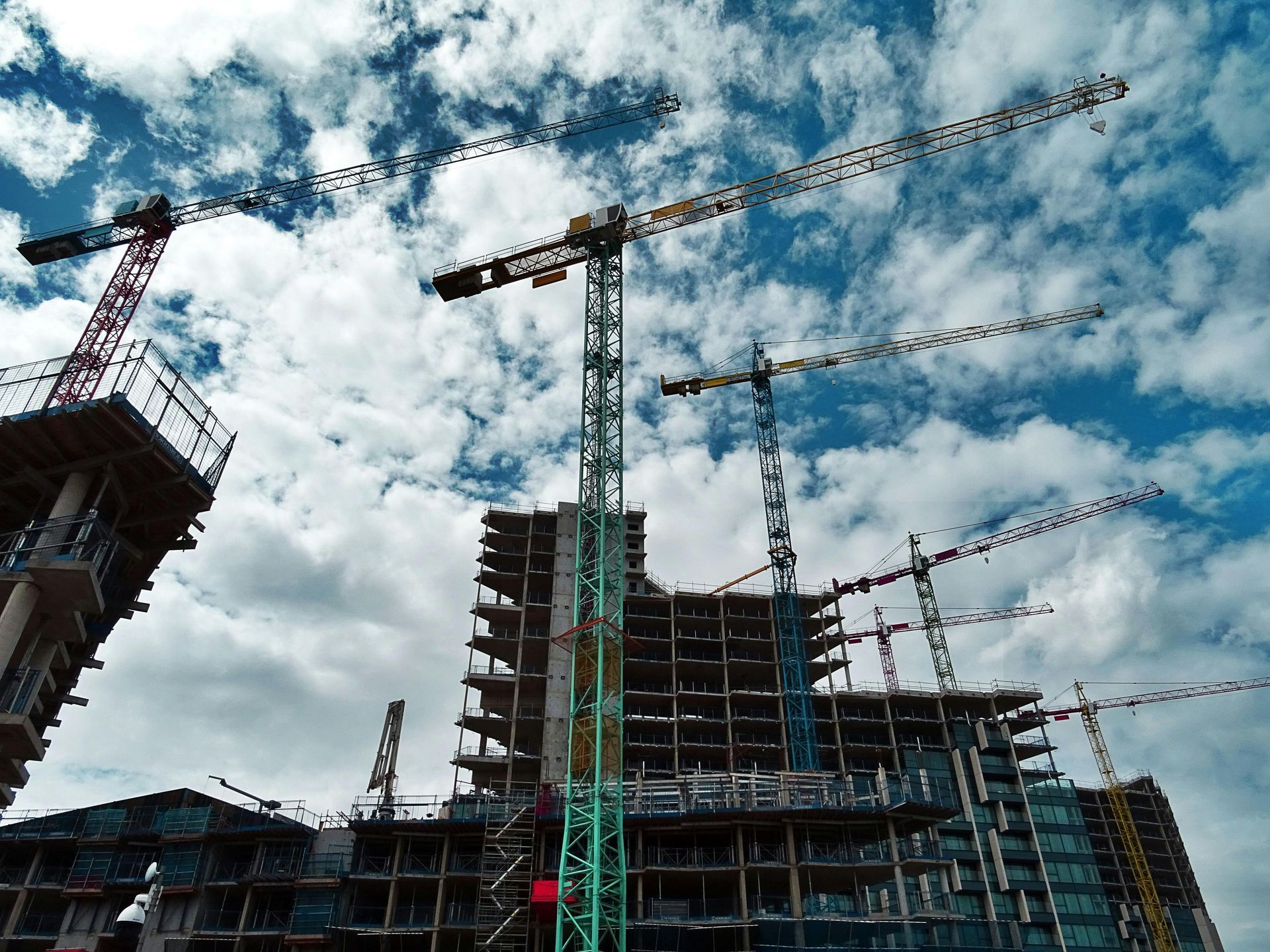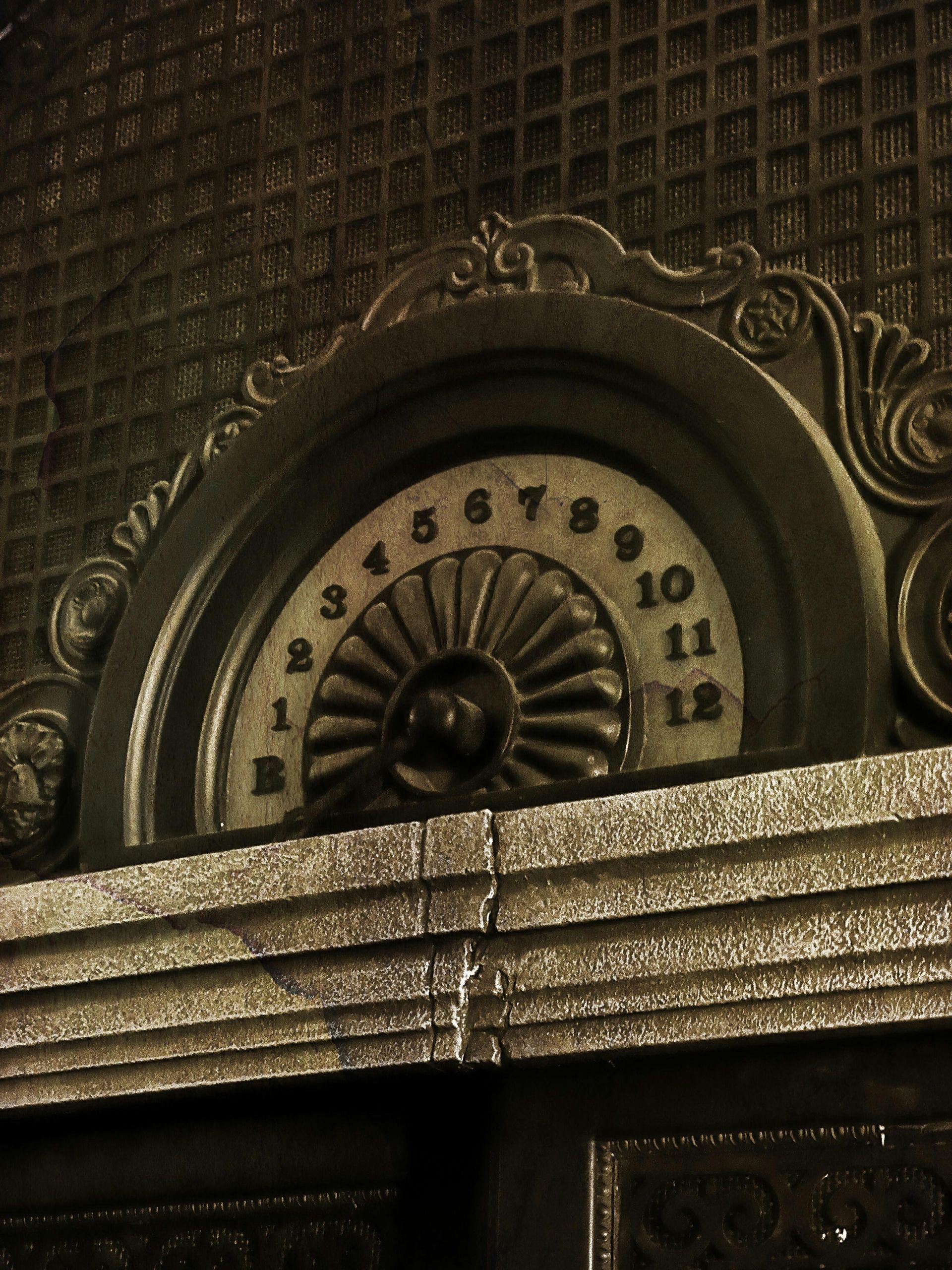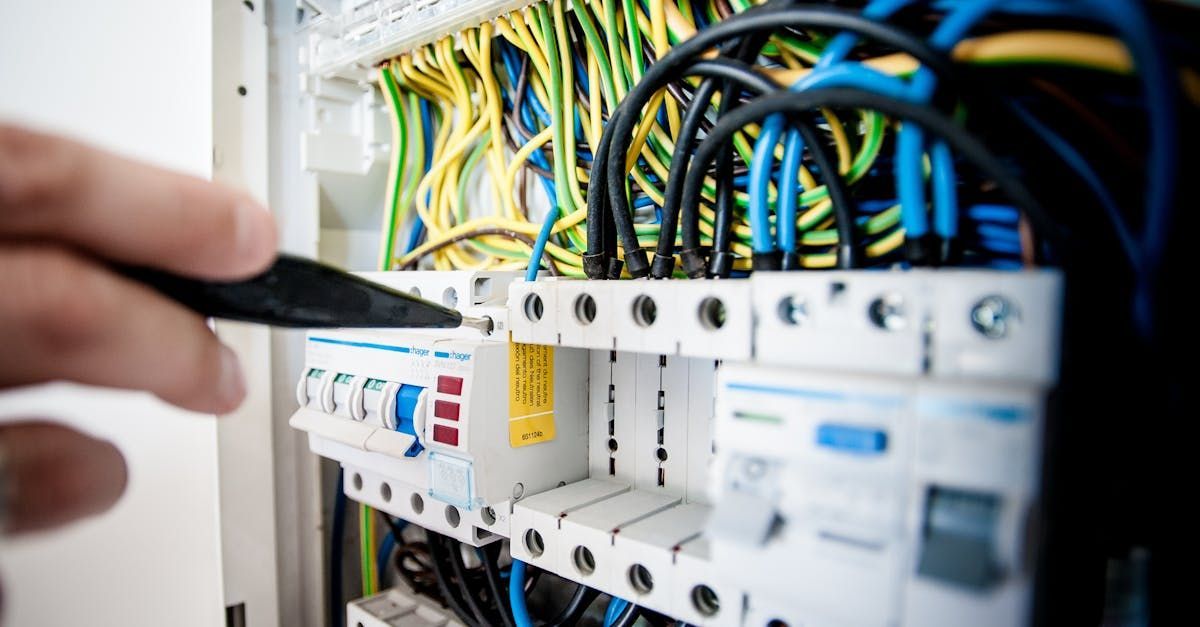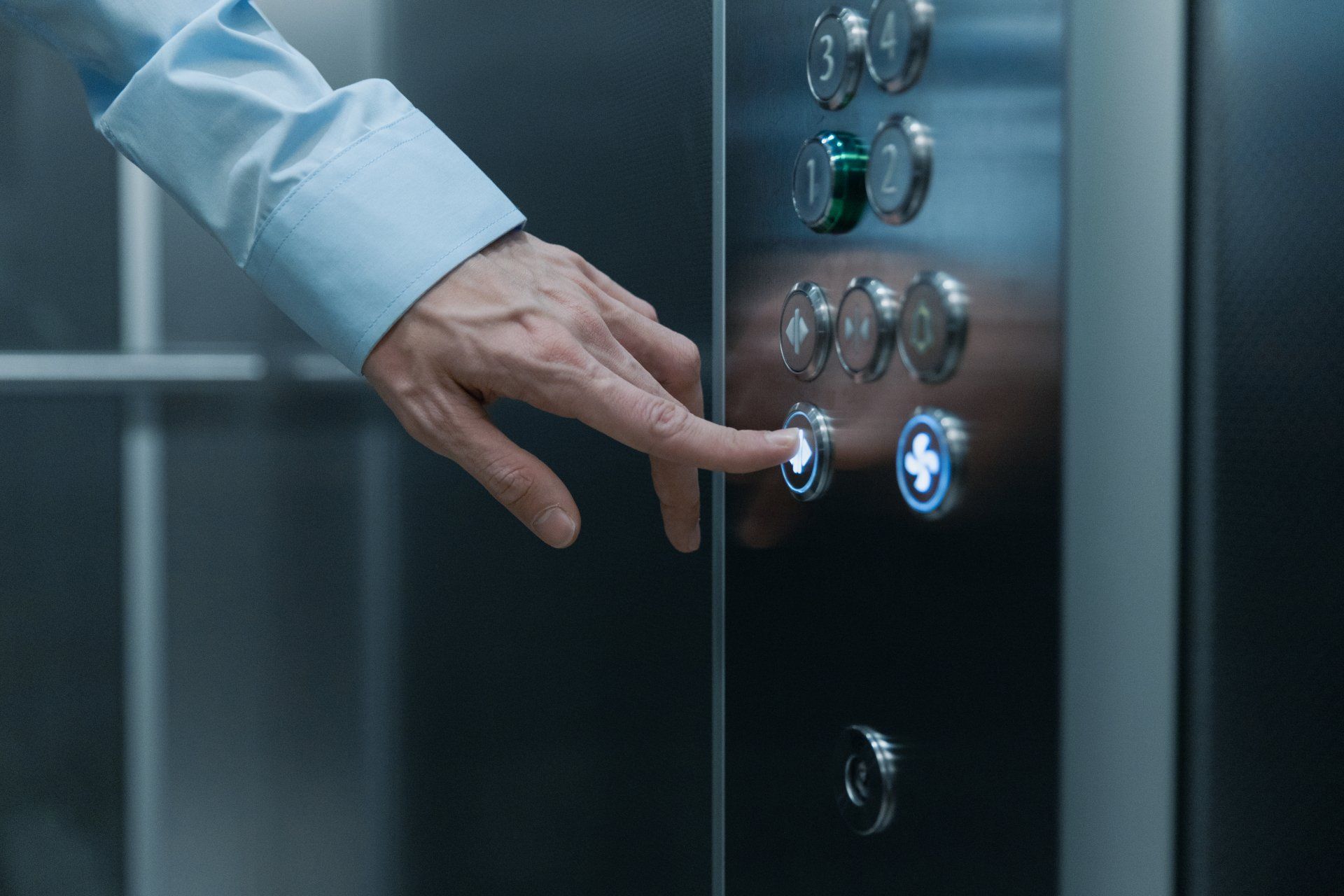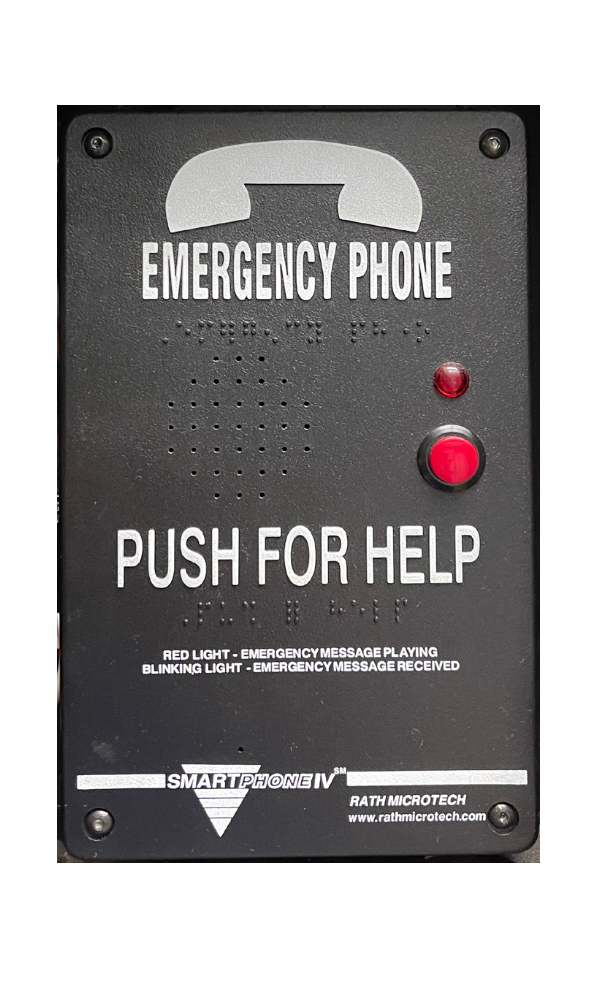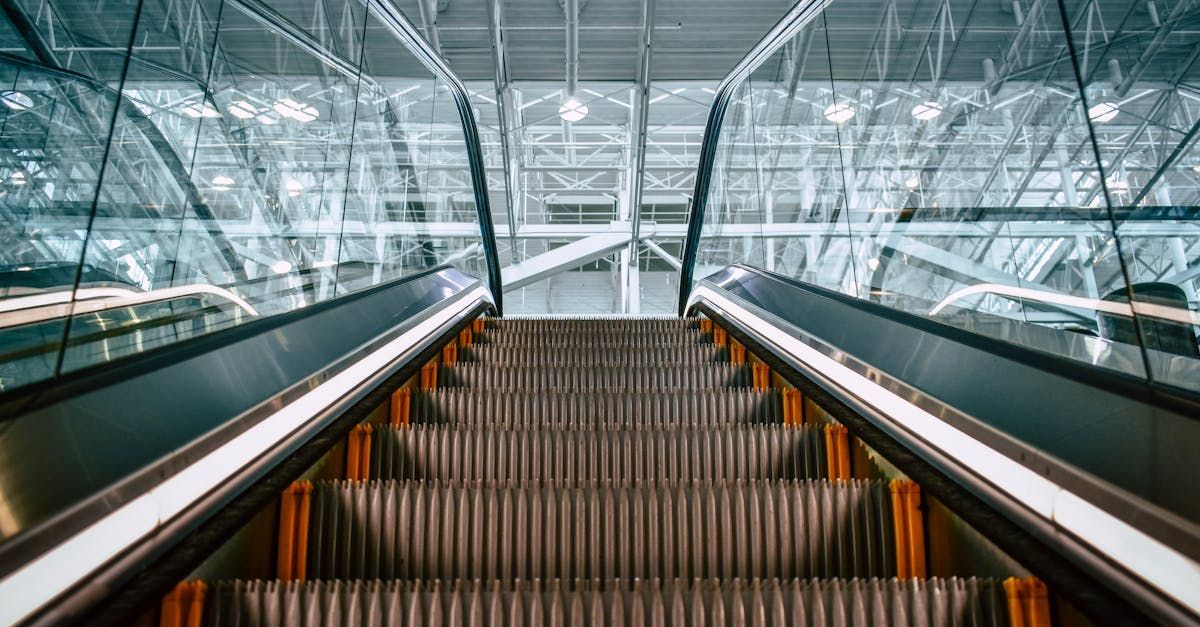Why You Should Avoid DIY Elevator Repairs
Key Highlights
- Safety First: Elevator systems are complex and house numerous moving parts, posing significant safety risks if tampered with.
- Technical Expertise: Elevator repairs necessitate specialized knowledge and tools, often beyond the scope of DIY enthusiasts.
- Legal and Insurance: DIY repairs can void warranties and insurance coverage, leaving you liable for accidents.
- Preventative Maintenance: Regular professional maintenance ensures the safe and reliable operation of your elevator.
- Peace of Mind: Entrusting elevator repairs to qualified professionals offers peace of mind, knowing your equipment is in capable hands.
Introduction
In today's world, elevators are very important. They make it easy to move between floors. But we should remember that elevators are complex. They rely on smart engineering and safety features. Fixing an elevator by yourself might seem tempting. However, it can be very dangerous and could cost you a lot. This blog focuses on how important professional elevator maintenance is. It shows the complicated nature of elevators and how you can find peace of mind by letting trained technicians handle your equipment.
Understanding Elevator Mechanics and Safety
Elevator systems in modern buildings are complex. They require a good understanding of different parts and safety rules. Each part, from the elevator car to the counterweight system, helps the elevator run smoothly and safely.
Trying to fix things yourself, or DIY, without the right knowledge can be dangerous. Elevators work with high tension and strong electrical systems. They also have complex mechanical parts that can be risky if not handled correctly.
The Role of Elevators in Modern Buildings
Elevators are essential for our daily life, especially in cities. Skyscrapers, which are tall buildings in modern cities, rely on these systems to exist. Just think about climbing many flights of stairs every day!
Elevators are also very important in places like hospitals, shopping malls, and apartment buildings. They help people and things move easily. Their role in helping our lives run smoothly is clear.
Our dependence on elevators shows how crucial it is for them to work safely and well. If an elevator stops working, it can upset daily routines, create safety risks, and even lead to legal issues.
Basic Components of Home Elevators
The complex systems in tall buildings may feel far from a home elevator, but they are based on the same key ideas. Residential elevators are made up of many parts that work together to move people safely up and down.
The main part of the system is the elevator car, which is the space that holds passengers. This car travels along guide rails, helping it move smoothly in the elevator shaft. Different types of elevators use either a hydraulic system or a counterweight mechanism to control how the car moves.
Knowing these basic parts is just the start. Each part has its own inner workings, including electric circuits, safety brakes, and control systems. So, trying to fix things yourself without fully understanding how these pieces work can lead to serious problems.
The Risks of DIY Elevator Repairs
The idea of saving money by doing DIY repairs can sound attractive. However, when it comes to elevators, the dangers are much greater than the benefits. Elevators work with a lot of force and need exact adjustments. Even small mistakes can lead to serious problems.
Also, trying to fix elevators on your own without the right training can create big legal risks. It can also cancel your insurance. If an accident happens, the legal and money problems can be very hard to handle.
Safety Hazards and Potential Injuries
Elevator problems can create many dangers. Trying to fix them without the right training can make these dangers worse. It is important to trust qualified professionals for all your elevator repair needs.
Here are some dangers of DIY elevator repairs:
Falls: If you mishandle cables or counterweights, the elevator car could fall down the shaft.
Electrocution: Elevators run on high-voltage electricity. Any mistake can be deadly.
Crushes: If you work on elevator parts without proper safety procedures, you could get crushed by moving parts.
Always keep in mind that safety features do not replace the need for qualified experts.
Legal and Insurance Implications
Doing elevator repairs yourself is not just risky for safety. It can also lead to serious legal and insurance issues. Most warranties from manufacturers state that only a trustworthy company can do the maintenance and repairs. If you try to fix it yourself, you may lose your warranty. This means you would have to pay for any future repairs out of your own pocket.
Also, insurance companies usually won’t pay for any damage or injuries related to unauthorized repairs. If something goes wrong, you could end up responsible for costs, including repairs, medical bills, or legal fees.
Choosing regular maintenance from a reputable company is not only safer. It also protects you from possible legal and financial problems. This way, you can have peace of mind, knowing you made the right choice.
Recognizing Common Elevator Problems
It's very important not to try fixing elevators on your own. However, knowing the common elevator problems is key. This knowledge helps you to quickly tell a professional about any issues. Acting fast can stop dangerous situations and keep things running smoothly. If you understand these problems, you can get in touch with a qualified elevator technician. This way, you reduce downtime and risks.
Strange Noises and Their Meanings
Unusual sounds from your elevator can mean that something is wrong. Some noises may not be serious, but others can show a bigger problem.
For example, a scraping noise could mean there is an issue with the guide rails or the elevator car’s alignment. If you hear grinding sounds, this might suggest worn-out bearings or gears. A hissing sound could mean there is a hydraulic fluid leak.
If you hear any strange noises, it is very important to tell your elevator maintenance company right away. Catching and fixing issues early can prevent more damage and keep your elevator working safely.
Delayed Door Operations
A delay in how the elevator doors open or close is a common issue. This is something you should never ignore. It may seem like a small problem, but it could mean there’s a bigger issue with the door sensors, the control system, or the elevator’s drive system.
Several things can cause delayed door operations, such as blockages in the door path, broken sensors, or voltage fluctuations. Trying to force the doors open or closed may make the situation worse and can harm the safety features.
If you notice delayed door operations, you should get in touch with a qualified lift maintenance technician. They can find out what is wrong and fix it. This helps to keep your elevator running smoothly and safely.
Unusual Elevator Movements
While some small vibrations or swaying might happen now and then, any strange or jerky movements in the elevator car should be taken very seriously. These movements could mean there is a problem with the hydraulic system, guide rails, or even the elevator car itself.
Jerky movements might be caused by uneven alignment of the guide rails, worn rollers, or issues with the hydraulic fluid levels. In serious situations, a quick drop or jolt could mean there is a big failure in the elevator's braking system.
Do not ignore any unusual movements of the elevator. Report them right away to a qualified elevator technician. They can check the situation, find the cause, and fix any issues.
Beginner's Guide to Elevator Maintenance
While fixing elevators on your own is not a good idea, knowing some basics about elevator maintenance can help your equipment last longer. It can also make sure it works well and safely. Keep in mind that this guide is not a replacement for maintenance from a qualified technician.
This beginner's guide shares easy steps to help support your elevator’s health. If you run into problems or don’t feel sure about anything related to elevator maintenance, it's best to be careful and reach out to a professional.
What You Need to Get Started
Maintaining your own elevator starts with knowing what your unit needs. A lift company can help you create a detailed maintenance schedule. This schedule considers your elevator type, how much you use it, and its age. It will list tasks to do, like lubrication points, how often to inspect, and cleaning steps.
Keep a logbook to write down all maintenance work. Write down the date, time, and what you did. This will help you keep track of maintenance, spot any patterns in how the elevator works, and give helpful info to your lift maintenance technician during service visits.
Keep in mind, this guide is just a starting point. You need a professional to ensure the elevator maintenance is done right. Regular checks by a qualified technician are very important. This ensures your elevator system runs safely and smoothly.
Identifying Signs of Elevator Distress
As a responsible elevator owner, it is important to know the basic parts and how they work. This knowledge helps you spot problems early. For example, check the elevator car for any wear and tear. Look for loose screws, damaged panels, or frayed cables.
You should also look around the elevator shaft. Make sure there is no debris, water leaks, or strange vibrations. Check the ceiling joists and nearby structures for stress or misalignment.
Remember, catching issues early is key to avoiding costly repairs. This simple guide is a good start. However, always talk to a qualified elevator maintenance professional for any concerns. This will help keep your elevator system safe.
Step-by-Step Guide to Basic Elevator Troubleshooting
While fixing elevators can be complex and often needs skilled experts, knowing a few basic steps can help you deal with common problems.
Keep in mind that this guide is just for information and should not replace professional help. If you are uncertain about anything related to elevator troubleshooting, it is best to get in touch with a qualified technician.
Step 1: Safety Precautions and Shutdown Procedures
Before you try any troubleshooting, think about safety first. Do not try to open stuck elevator doors or tamper with electrical parts. Remember that elevators work with high voltage and have moving parts, which can be dangerous if handled the wrong way.
If you hear strange noises or see odd movement, the first thing to do is safely stop the elevator. Do not ride an elevator that is acting strangely. If you can, use the emergency stop button inside the elevator car to stop it right away.
After the elevator is safely stopped, contact a qualified elevator professional for help. Do not try to fix or check the elevator yourself because it needs special skills and tools.
Step 2: Simple Diagnostic Checks
Once you have made sure that everyone is safe and you have called a professional, you can do some simple checks. This can be useful when you talk to the lift maintenance technician.
Start by looking at the power supply to the elevator. Make sure that the circuit breaker is not off and that the elevator has a good electrical connection. Check the control panel for any error codes or warning lights.
But do not open any panels or try to fix the problem yourself. These first steps are just to gather some basic information. Leave any deeper diagnosis and repairs to the trained technicians.
Step 3: Resetting the Elevator System
In some cases, you can fix small problems with your residential elevator by doing a system reset. Check your elevator's user manual for clear steps, as the process may differ based on the make and model.
Usually, resetting means you need to turn off the power to the elevator for a short time and then turn it back on. This can help clear minor issues or errors in the system.
If the reset does not fix the problem, do not try to troubleshoot further. Contact a trained elevator technician. They can find and fix the issue safely and effectively.
Step 4: When to Call a Professional
While following the earlier steps can give you helpful information, it's important not to try repairs on your own. Elevator systems are complicated and can be dangerous. You need qualified professionals to handle them.
If the problem continues after resetting the system, or if you see strange signs like burning smells or odd noises, you should contact a good elevator company right away.
Choosing qualified professionals instead of DIY methods ensures your elevator works safely and well. It gives you peace of mind to know that experts are taking care of your equipment with the best safety and quality standards.
Selecting a Professional Elevator Service Provider
Choosing the right elevator service provider is very important because of the complex safety features of elevators. You wouldn't hire just anyone to take care of your elevator, right?
Look for companies with a good history, certified workers, and a focus on keeping customers happy. Picking the right provider helps make sure your elevator lasts longer and stays safe. This gives you peace of mind.
Certifications and Experience
When you pick an elevator service, focus on certifications and experience. Qualified professionals go through tough training and have the right licenses for working on elevators. Make sure the company you select employs certified technicians.
A reputable company will have documents ready that show their certifications and insurance. Don't be afraid to ask for this paperwork. It shows you are serious about the safety of your elevator system and its users.
Also, remember that experience is very important. A company with many years of working on elevators likely understands different types, brands, and possible issues. This allows them to give faster and better solutions.
Services Offered and Availability
Different elevator companies provide various services. Some focus only on lift maintenance. Others offer a full range, like installation, updates, and emergency repairs.
Before choosing a company, check what services they offer. Make sure they fit what you need. Ask about their maintenance plans. Do they include regular checks, lubrication, and replacing old parts?
It is also important to think about how available the company is. Elevators can break down suddenly and may need quick help. Choose a company that offers 24/7 emergency service and has technicians ready to fix problems right away.
Customer Feedback and Reputation
In today's digital world, customer feedback is important. It helps us understand a company's reputation and the quality of their service. Before you choose an elevator service provider, take a moment to look at their online reviews and testimonials.
Websites that focus on customer reviews can show you what past clients have experienced. They point out both the strengths of the company and areas that may need improvement. Watch for things like how responsive they are, their professionalism, the quality of their work, and if they follow safety standards.
Picking a reputable company that has good customer feedback means your elevator will be well taken care of. This thoughtful choice reduces the chance of facing poor service and helps you feel more at ease about the care of your elevator system.
Preventative Maintenance for Elevators
Just like your car needs regular check-ups to avoid problems, elevators need regular maintenance to stay safe, last long, and work well. If you forget to maintain them, you might face expensive repairs, surprise stop times, and safety risks.
Having a plan for regular maintenance is not just about making things easier. It’s about protecting your investment and keeping everyone who uses the elevator safe.
Scheduled Maintenance Plans
Most trusted elevator companies have maintenance plans. These plans are designed for the needs and use of your elevator. They usually include regular inspections, lubrication of moving parts, adjustments when needed, and changing worn-out parts.
How often you need scheduled maintenance depends on things like the type and age of the elevator, how much it's used, and local rules. Residential elevators usually need servicing at least once a year. Commercial elevators may need attention more often.
Keeping up with a maintenance plan is a good investment. Regular maintenance helps to reduce the chances of unexpected breakdowns. It also allows you to spot potential issues early. This can stop small problems from becoming bigger ones.
Emergency Response and Repair Services
Despite all the safety steps, elevator emergencies can still happen. When an elevator breaks down, it can disrupt your work, cause problems, and may even be unsafe. In these cases, you need an elevator service that can respond quickly to emergencies.
Pick a company that has a good history of fast service and effective repairs. Check if they are available during off-hours and on weekends. Emergencies can occur at any time.
Having a reliable team ready to help with an elevator emergency can give you peace of mind. It ensures that your elevator is fixed as soon as possible, and any problems are sorted out quickly and well.
Financial Considerations of Elevator Upkeep
While keeping elevators safe is very important, we should also think about the costs. Paying for regular expert maintenance may feel like unnecessary spending at first. However, if you skip it, repairs can become much more expensive over time.
This part looks at the cost benefits of hiring professionals compared to doing repairs yourself (DIY). It also gives useful tips for budgeting regular elevator maintenance.
Cost-Benefit Analysis of Professional Versus DIY Repairs
While the allure of saving money with DIY repairs might seem tempting, a thorough cost-benefit analysis reveals that professional elevator maintenance is the more financially sound approach. While DIY might seem cheaper upfront, the potential long-term costs can far outweigh any initial savings.
Consider this: an improperly executed DIY repair can result in further damage, voiding warranties and leading to more extensive (and expensive) repairs down the line. Furthermore, DIY repairs increase the likelihood of safety hazards, potentially leading to accidents with even greater financial implications.
Budgeting for Regular Maintenance
Integrating regular elevator maintenance into your budget is very important. It helps avoid surprise costs and keeps your equipment working longer. Think of elevator maintenance as a necessary cost for operating your home, rather than something you can skip. This helps keep your finances stable over time.
If you have a home elevator, include annual or twice-a-year service costs in your budget. You might want to set aside a small amount of money each month just for elevator upkeep. This way, you can spread the cost out over time, making it easier to handle.
For bigger properties or businesses with more than one elevator, look into service contracts with elevator companies. These contracts usually cover regular maintenance and emergency repairs. They often offer lower prices compared to paying for each service separately. This gives cost certainty and offers peace of mind.
Conclusion
In conclusion, safety is the most important thing when you think about elevator repairs. Doing repairs yourself can create big risks, both for your safety and for legal and financial reasons. Learning about how elevators work shows why you should hire professional elevator service providers. It is important to know common problems, do regular check-ups, and ask for help from experts when needed. This helps keep your elevator system safe and working well for a long time. Remember, spending money on professional elevator maintenance is a smart choice to ensure your elevators run smoothly and safely for many years ahead.
Frequently Asked Questions
What are the dangers of DIY elevator repairs?
DIY elevator repairs can be very dangerous. This is mainly because of high voltage and strong moving parts. Trying to fix them yourself might also lead to legal problems. It can void your insurance policies too. Most importantly, you won’t have peace of mind knowing that experts or qualified professionals are not handling the repairs.
How often should a home elevator be serviced?
To keep safety features good and avoid problems, it is important to have regular maintenance checks by a trained lift maintenance technician. It is a good idea to schedule service for your residential elevator at least once a year.
Can minor elevator issues be fixed without a professional?
It can be tempting to fix small issues with elevators on your own. However, it is always better to reach out to qualified professionals for elevator problems. Trying to make DIY fixes on safety features can be risky. This is something you should avoid.
What is the lifespan of a typical home elevator?
The life of a home elevator mostly depends on how often you use it, the model you have, and how well you take care of it through regular maintenance. If you properly look after it and pay attention to any wear and tear, a well-maintained residential elevator can last for many years.
How to choose the right elevator maintenance service?
Choose a reputable company that has certified technicians and good reviews from customers. Check what services they offer to make sure they meet your needs. Also, ask about their certifications to ensure they provide high-quality service.




